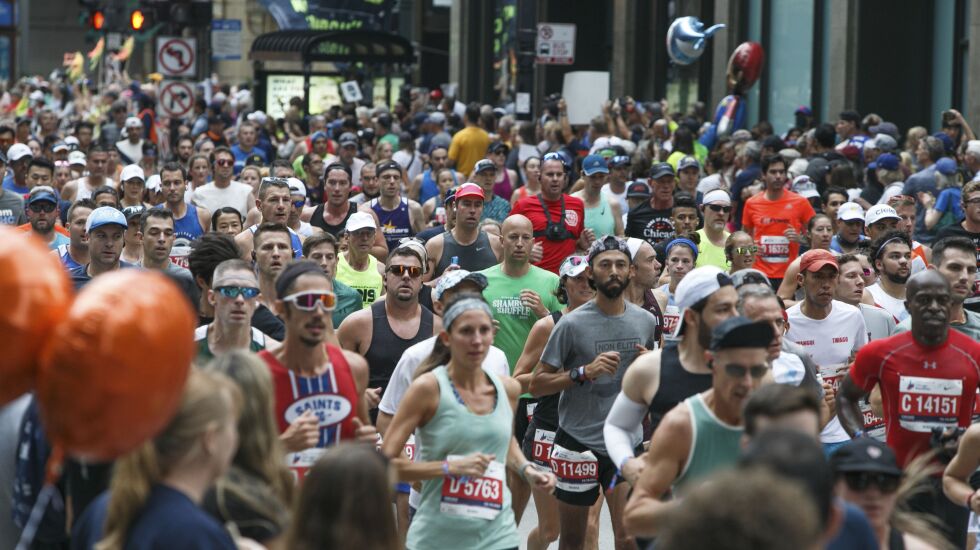
This year’s Bank of America Chicago Marathon could be the largest ever, a sign that runners are past worrying about COVID-19.
More than 47,000 runners are registered for the Oct. 8 race, a sizable field that could sprint past the record attendance set in 2019 of 45,932 finishers, organizers told the Sun-Times.
Race officials won’t know if a record has been set until weeks after the race, when they calculate the number of finishers. More than 47,000 racers registered in 2019 as well, but this year is trending to be the largest field ever, organizers say.
“There’s just a great energy that’s fueling this record year,” said Carey Pinkowski, the race’s executive director.
Chicago Marathon attendance had been growing steadily before the COVID-19 pandemic prompted race officials to cancel the race in 2020 and hold it virtually. The race was brought back the following years, but it was much smaller.

Attendance dropped to 26,109 in 2021 because of public health rules that limited the size of the race, Pinkowski said.
In 2022, international travel restrictions limited the size again, he said, with just 39,387 finishing last year.
But in 2023, racers are “coming out of the pause and the recovery of COVID,” Pinkowski said.
Attendance is also potentially record-breaking because, for the first time, the Chicago Marathon is hosting the Abbott World Marathon Majors Wanda Age Group World Championships, he said.
That race, held concurrently with the marathon, will bring in around 2,500 mostly international runners, Pinkowski said.

There’s also excitement about the race’s 45th anniversary this year, he said.
New racers who began running during lockdown may also be boosting attendance, said Tim Bradley, executive director of the Chicago Area Runners Association.
“The other theory is that if people picked up running in 2020, they would finally be in the position to race,” Bradley said.
Bradley’s organization runs a marathon training program. Its attendance has tracked closely with the marathon’s numbers, dipping drastically after 2020 but coming back stronger than before.
“It’s been so long that people forget how strong running was” before COVID-19, he said. Races had to pause for almost two years during the strictest pandemic regulations.
Running was a “boom market” that took “a huge dip, and now it’s bouncing back,” he said.







